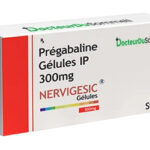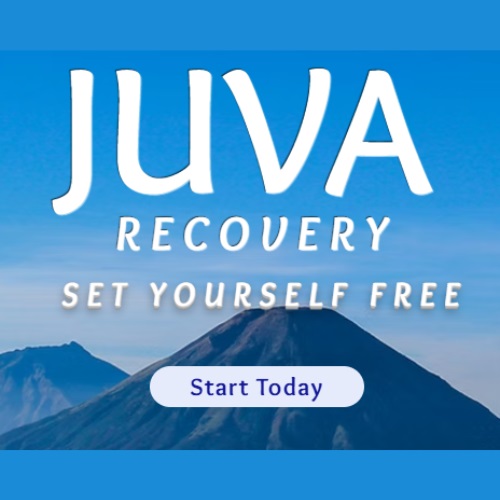In today’s evolving healthcare environment, mental health and substance use recovery are finally getting the attention they deserve. Yet one of the most critical aspects of lasting success—medication oversight—remains widely underestimated. Whether managing depression, anxiety, or opioid use disorder, proper meds management can be the key to unlocking long-term stability.
This article explores how medication management serves as a bridge between medical treatment and true mental health recovery. From improving medication adherence to supporting those undergoing suboxone treatment, structured medication oversight transforms lives by replacing confusion and inconsistency with clarity, accountability, and hope.
What Is Med Management?
Med management, short for medication management, refers to the careful supervision of a patient’s prescribed medications. This oversight includes:
-
Reviewing all active medications
-
Adjusting doses to meet changing needs
-
Monitoring side effects and drug interactions
-
Promoting safe and effective use
-
Supporting mental health and addiction recovery through pharmacological guidance
It’s not just about pills—it’s about providing a stable foundation for recovery through consistency and education.
Medication Oversight and Mental Health: A Vital Connection
Individuals with mental health disorders like depression, bipolar disorder, and PTSD often require one or more medications to stabilize mood, improve function, and support therapy outcomes. But without professional meds management, patients may experience:
-
Missed doses or overmedication
-
Poor understanding of their prescriptions
-
Increased risk of side effects or dangerous interactions
-
A higher chance of discontinuing treatment prematurely
By implementing medication management services, healthcare providers ensure each patient’s treatment plan is monitored and adapted over time. This leads to better outcomes, fewer crises, and increased emotional balance.
Supporting Substance Use Recovery: The Role of Suboxone
Suboxone is a game-changer for opioid addiction recovery. It combines buprenorphine (a partial opioid agonist) with naloxone (an opioid blocker), helping patients reduce cravings, minimize withdrawal, and transition into long-term sobriety.
But to work effectively, Suboxone must be taken with precision and regularity. That’s where suboxone medication management becomes critical. Through professional oversight, clinicians can:
-
Ensure adherence to the prescribed regimen
-
Monitor for side effects or signs of misuse
-
Adjust doses based on the patient’s progress
-
Integrate treatment with mental health support
A program like Suboxone treatment in Columbus, Ohio offers structured medication oversight to give patients the stability they need to focus on healing.
Medication Adherence: Why It Matters
Medication adherence—the degree to which a patient follows their prescribed plan—is a common challenge in mental health and addiction recovery. Forgetting doses, misunderstanding directions, or stopping medication too early can derail progress and lead to:
-
Mood instability
-
Increased cravings or withdrawal
-
Emergency hospitalizations
-
Higher relapse rates
Medication oversight teams support adherence through reminders, counseling, and patient education. They help patients understand not just how to take their medication—but why it matters. This can empower patients to take ownership of their own recovery.
Integrated Mental Health Management
What makes meds management truly powerful is its ability to blend seamlessly with mental health management. When medication oversight is coordinated with therapy, case management, and support services, patients receive a fully integrated care model.
This might include:
-
Joint care plans between psychiatric and addiction specialists
-
Regular mental health screenings and medication reviews
-
Real-time medication adjustments based on psychological changes
-
Coordination between therapists and prescribing providers
Patients not only stabilize their symptoms but begin to thrive emotionally—an essential shift for anyone healing from trauma or long-term substance use.
Preventing Relapse and Crisis
One of the biggest advantages of professional medication oversight is early intervention. Because care providers are consistently monitoring adherence, behavior, and mood, they can catch signs of trouble before they escalate.
Some warning signs they might notice include:
-
Skipped appointments or refills
-
Mood swings or changes in sleep
-
Drug-seeking behaviors
-
Reports of hopelessness or increased anxiety
When these signals arise, care teams can act quickly—adjusting medications, intensifying therapy, or involving crisis intervention. This proactive model helps prevent relapse, hospitalization, or worse.
A Long-Term Approach to Stability
Mental health and addiction recovery don’t have a finish line. They’re lifelong journeys that demand adaptability. That’s why medication management services are designed to evolve with the patient. As life circumstances change, so should the treatment plan.
Whether it’s transitioning back to work, navigating family dynamics, or managing a co-occurring condition, ongoing meds management ensures medications remain relevant, effective, and safe.
Explore how suboxone medication management provides this kind of long-term support, especially for those navigating both opioid addiction and emotional instability.
Final Thoughts: Medication Oversight Is More Than a Task—It’s a Lifeline
From regulating emotions to preventing relapse, medication oversight provides the foundation upon which stable, healthy recovery is built. It transforms medications from a daily burden into a strategic asset. For individuals in suboxone treatment, dealing with co-occurring mental health conditions, or managing complex medication regimens, the value of meds management cannot be overstated.
Through a combination of structure, education, and personalization, medication management services bring peace of mind and predictability to what is often a chaotic healing process.
If you or a loved one is looking for a better path to recovery, make sure medication oversight is part of the treatment plan. Because recovery is not just about stopping a substance—it’s about rebuilding mental health, one day and one dose at a time.
- Medication Oversight for Recovery & Mental Health Stability
- Explore how med management and medication oversight support mental health, suboxone treatment, and long-term recovery through structure and adherence.
- suboxone medication management
Related posts:
 What Are the Key Considerations Before Getting Filler Injections?
What Are the Key Considerations Before Getting Filler Injections?
 Dr. Kami Hoss Gives Out the Truth About Brushing & Flossing-Protecting Your Teeth
Dr. Kami Hoss Gives Out the Truth About Brushing & Flossing-Protecting Your Teeth
 Can Atrial Fibrillation Be Cured? Latest Research & Insights
Can Atrial Fibrillation Be Cured? Latest Research & Insights
 Expert Lung Care in Jaipur: Why You Shouldn’t Ignore Breathing Issues
Expert Lung Care in Jaipur: Why You Shouldn’t Ignore Breathing Issues
 Control Fasting Blood Sugar with Confidence – Get Glycomet Online Today
Control Fasting Blood Sugar with Confidence – Get Glycomet Online Today
 Effective Weight Loss Clinic Killeen: Your Path to Lasting Results
Effective Weight Loss Clinic Killeen: Your Path to Lasting Results
 How to Prepare for Your Appointment with the Best Plastic Surgeon in dubai for Fillers
How to Prepare for Your Appointment with the Best Plastic Surgeon in dubai for Fillers
 Comment les analgésiques sur ordonnance se comparent-ils aux options en vente libre ?
Comment les analgésiques sur ordonnance se comparent-ils aux options en vente libre ?






